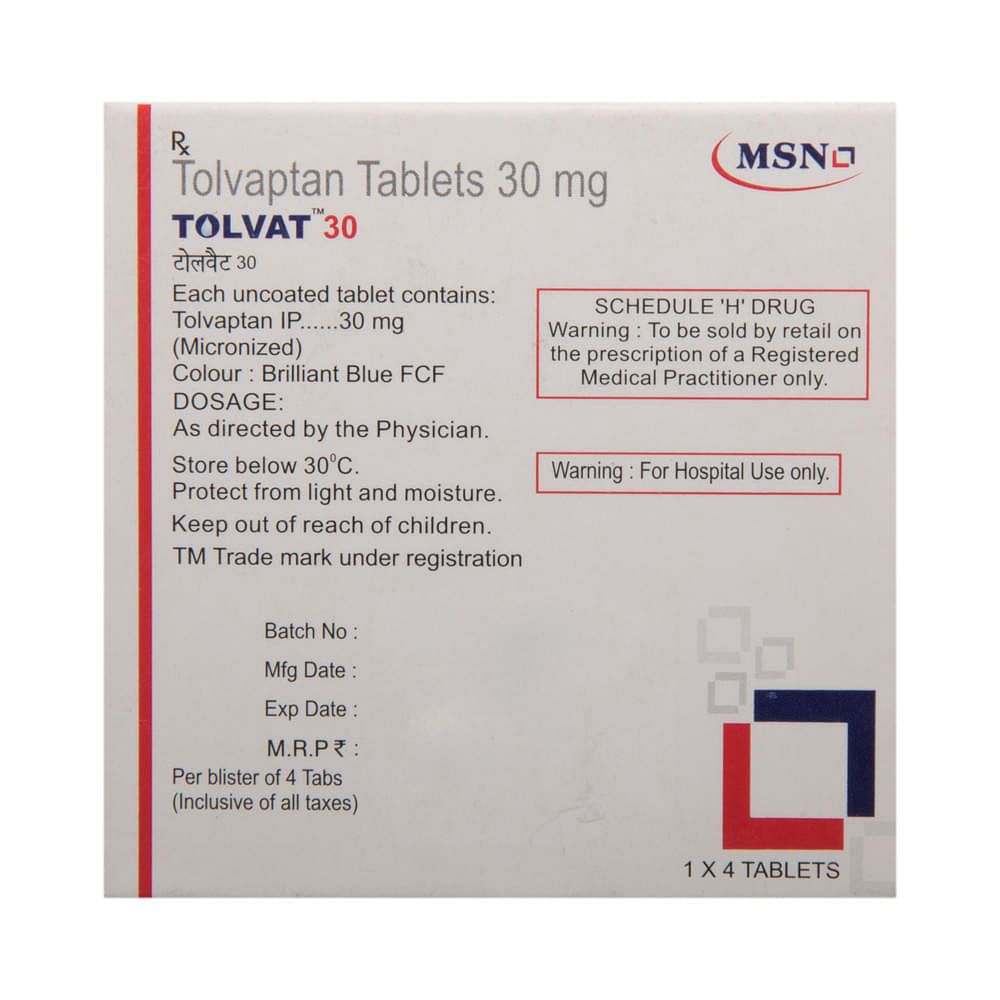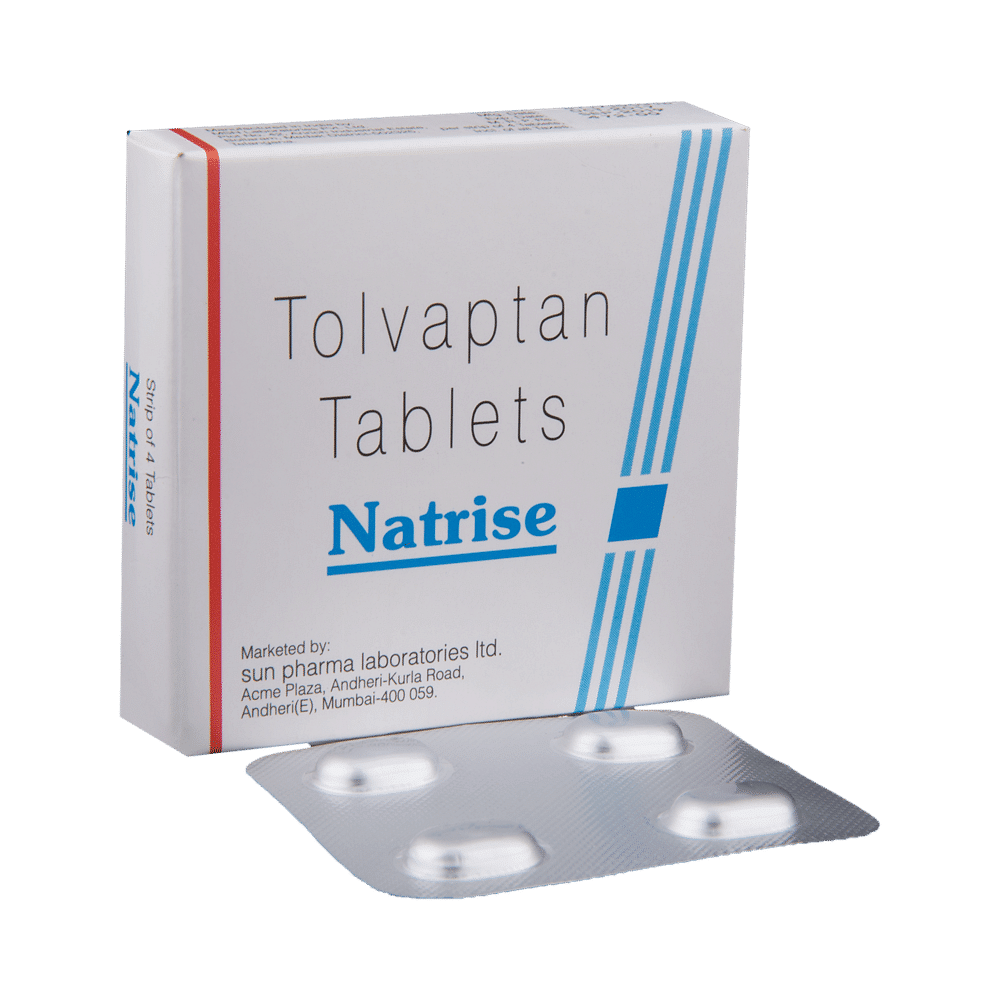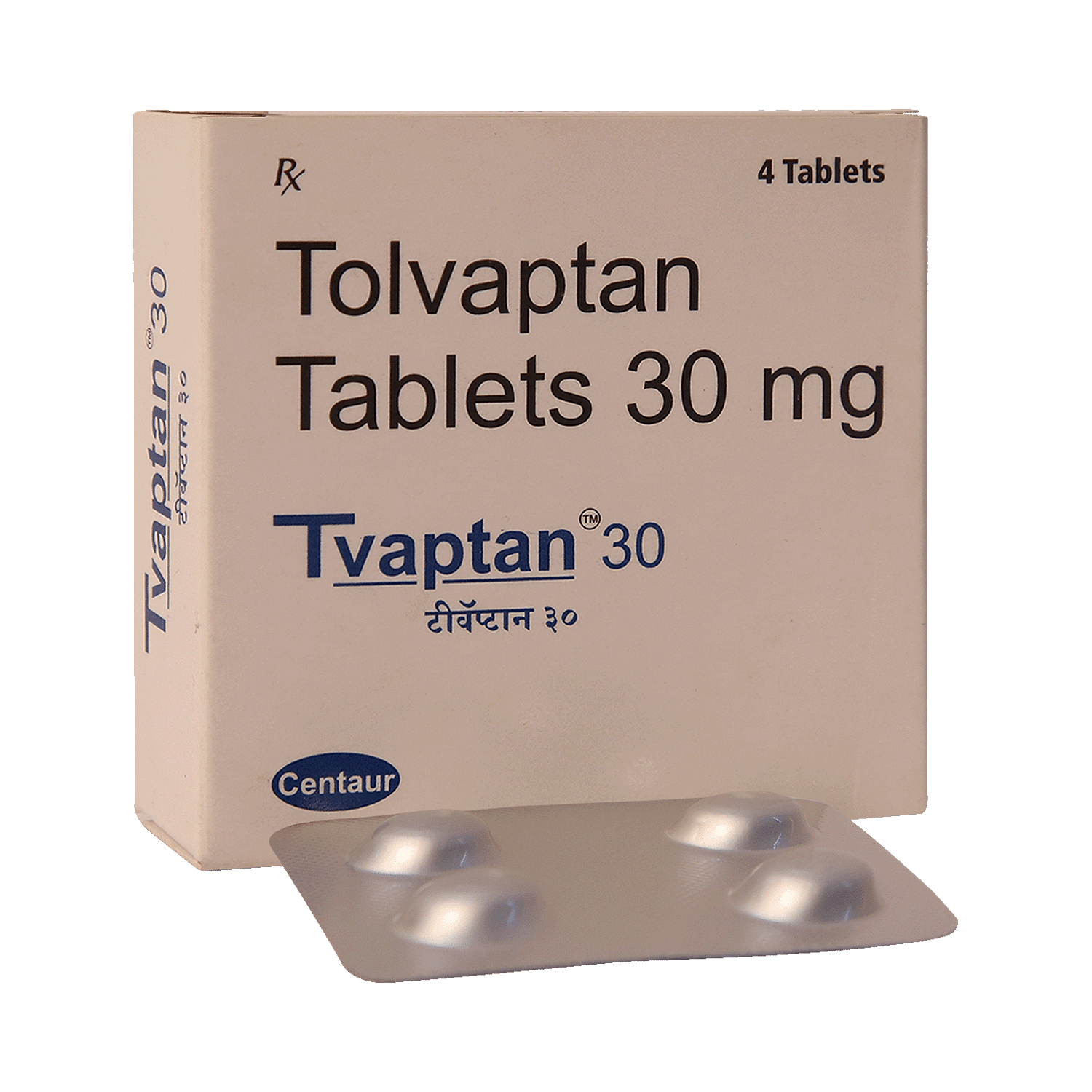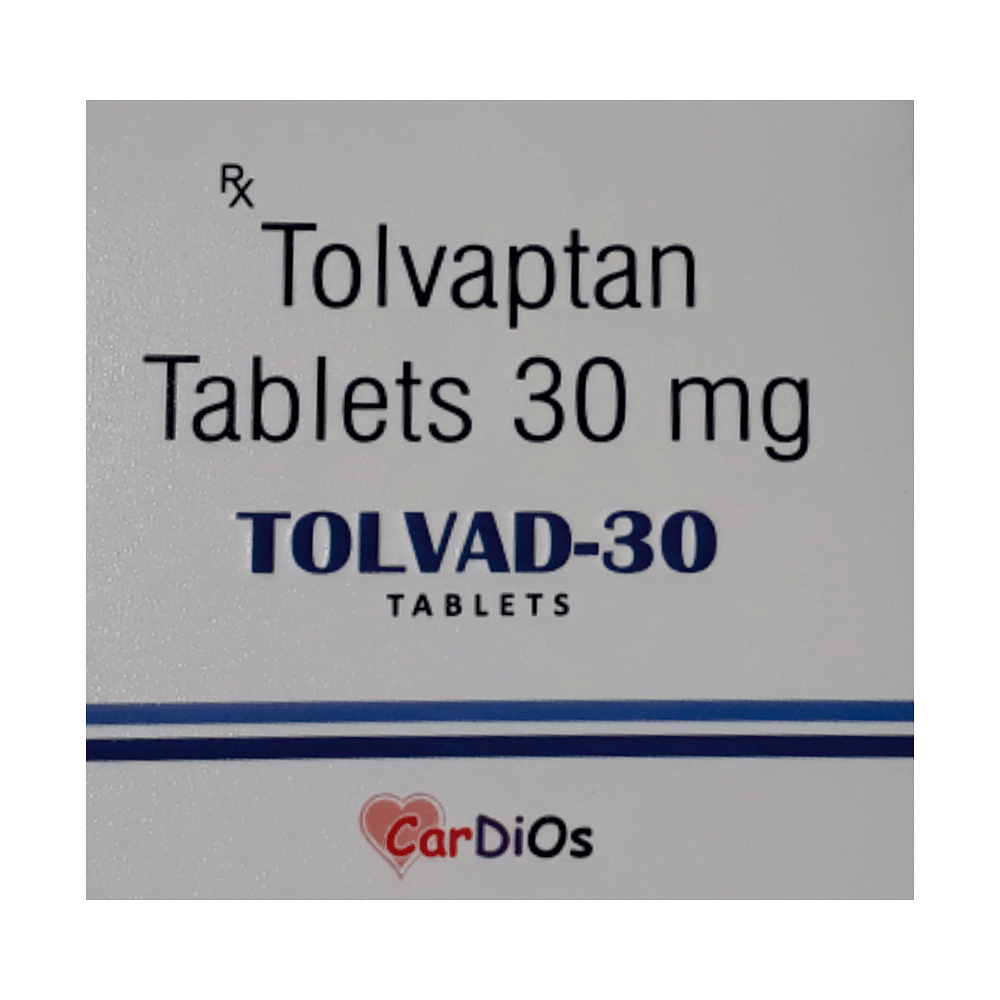
Shiokem 30mg Tablet
Manufacturer
Alkem Laboratories Ltd
Salt Composition
Tolvaptan (30mg)
Key Information
Short Description
Shiokem 30mg Tablet is a medicine used in the treatment of low levels of sodium in the blood.
Dosage Form
Tablet
Introduction
Shiokem 30mg Tablet can be taken with or without food. It should be taken exactly as prescribed by your doctor. Your doctor will decide the dose and how often you should take them. You should take this medicine regularly to get the most benefit from it. Do not stop taking the medicine even if you feel better unless the doctor tells you so.
Directions for Use
Take this medicine in the dose and duration as advised by your doctor. Swallow it as a whole. Do not chew, crush or break it. Shiokem 30mg Tablet may be taken with or without food, but it is better to take it at a fixed time.
How it works
Shiokem 30mg Tablet is a vasopressin antagonist. It works by blocking the effect of the hormone vasopressin in the body. This increases urine production, reduces the amount of water in the blood and raises the blood sodium level.
Quick Tips
Take it at the same time everyday. Take it according to the dose and duration prescribed by your doctor. To avoid dehydration, it is best to drink something as soon as you feel thirsty but avoid alcoholic drinks. Do not take Shiokem 30mg Tablet if you are unable to urinate, if you are unable to tell when you are thirsty, or if you are severely dehydrated. You will need to be in a hospital under observation any time you start or restart treatment with Shiokem 30mg Tablet. Inform your doctor if you notice problems with speech or muscle control, trouble swallowing, trouble moving your arms and legs, or mood changes.
Related Medicines

Tolvat 30 Tablet

Natrise 30 Tablet

Tvaptan 30 Tablet

Tolvasca 30 Tablet

Tolsama 30mg Tablet

Tolvad 30mg Tablet

Tolvact 30 Tablet

Tolvamac 30mg Tablet

Tolwin 30mg Tablet

Toldew 30mg Tablet
Frequently asked questions
What are the most important things I should know about taking Shiokem 30mg Tablet?
Shiokem 30mg Tablet may cause a rapid increase in sodium levels in your blood, which can lead to serious nerve damage, coma, and even death. Symptoms of this condition, known as osmotic demyelination syndrome (ODS), may include difficulty speaking, swallowing, or controlling body movements, as well as drowsiness, confusion, mood changes, seizures, and muscle weakness. It is essential to be aware of these risks and follow your doctor's instructions carefully.
How long should I take Shiokem 30mg Tablet?
Shiokem 30mg Tablet is used to correct sodium levels in the blood. The dose and duration of treatment are determined by your doctor, but it is generally recommended not to take the medication for more than 30 days. Once your sodium levels return to normal, you should stop taking the medication after consulting with your doctor.
Does Shiokem 30mg Tablet affect blood sugar levels?
Yes, Shiokem 30mg Tablet may increase blood sugar levels. Patients with diabetes mellitus should be cautious when taking this medication and monitor their blood sugar levels regularly.
Who should not take Shiokem 30mg Tablet?
You should not take Shiokem 30mg Tablet if you have low sodium levels, are unable to replace fluids by drinking, or are experiencing symptoms such as thirst, dizziness, or fainting. Additionally, you should avoid taking this medication if you have kidney problems, are unable to produce urine, or are allergic to it. You should also consult with your doctor before taking Shiokem 30mg Tablet if you are taking certain medications that may interact with it.
Can I consume grapefruit juice while taking Shiokem 30mg Tablet?
No, you should avoid consuming grapefruit or grapefruit juice while taking Shiokem 30mg Tablet. Grapefruit or grapefruit juice may increase the levels of Shiokem 30mg Tablet in your blood, leading to rapid increases in sodium levels.
What should I do if I take too much Shiokem 30mg Tablet?
If you take too much Shiokem 30mg Tablet, you may need urgent medical attention. Symptoms of overdose may include excessive thirst, dry and flaky skin, sunken eyes, rapid heartbeat, rapid and shallow breathing, low blood pressure, increased urine production, and fainting. Call your doctor or seek emergency medical attention at a nearby hospital immediately.


